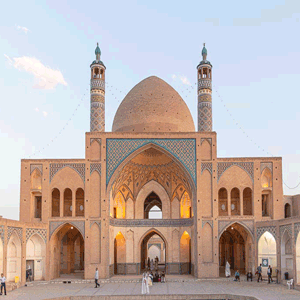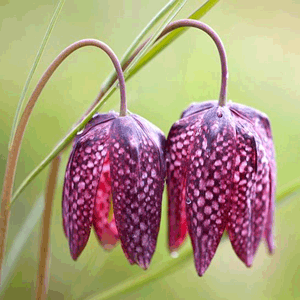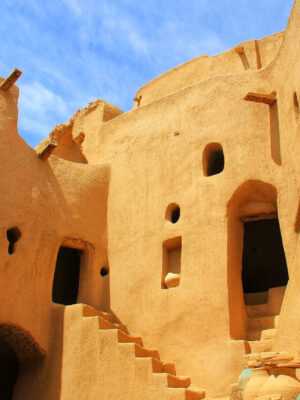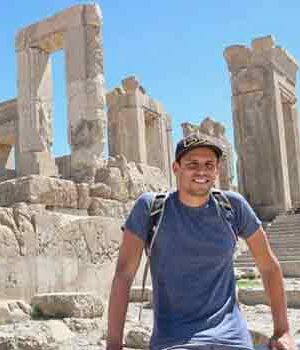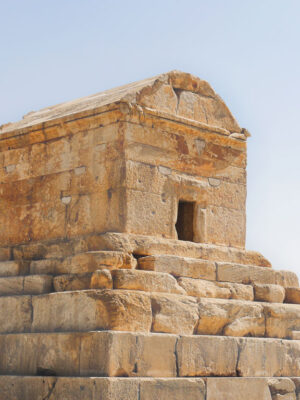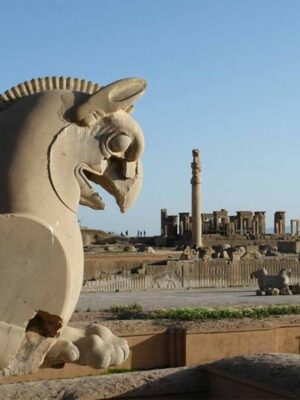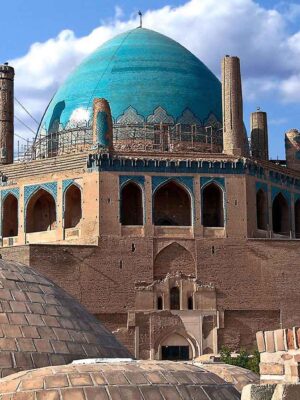Yalda Night
Every year on December 20th/21st, Iranian families get together and sit around a table covered with colorful fruits and treats, and make the year’s longest night the coziest. They recount stories, recite poems, and indulge in the ceremonial nuts and fruits prepared for an ancient Persian occasion called Yalda Night.
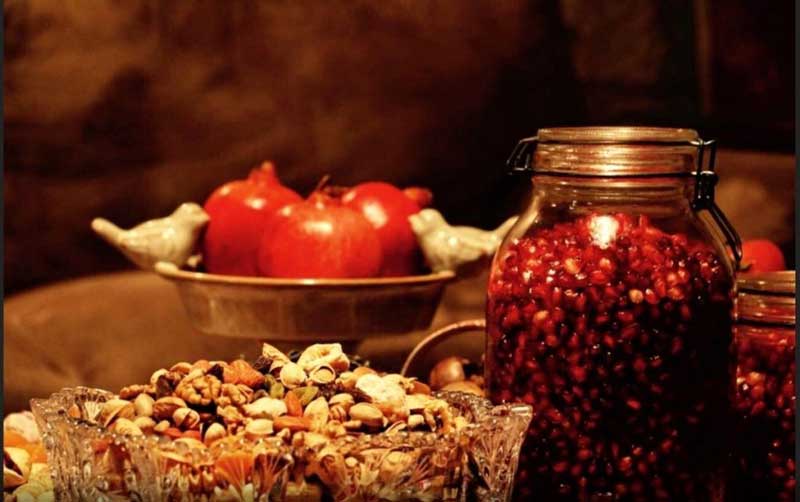
History
The oldest record of the Yalda Night ceremony dates back to the 6th century BC in Iran when the Arians observed this tradition as an ancient Persian Festival. It was believed to be the victory of light and goodness over darkness and evil. As the sun rises on the morrow of Yalda, the days start getting longer and the nights become shorter, respectively.
To celebrate the surrender of the longest night to the rising sun, the Arians would gather, eat, drink, dance, and tell stories well until dawn. They would have a lavish banquet called Myazd that included forty different types of fresh and dried fruits along with nuts and drinks and other dishes.
After the advent of Islam in Persian lands, Yalda Night as an Arian tradition survived but waned into more of a social event for families and friends to celebrate. Nowadays, Iranians still get together on this occasion, eat the same fruits and nuts (although not the same wide selection which was available in the past) tell stories, and read poems. However, the occasion has lost its Arian religious significance.
Yalda Night Meaning
Literally meaning “Birth” in Syriac language, Yalda Night refers to the birth of Mithra, the ancient Arian goddess of light. Iranians also call it Shab-e-Chellé. It is basically a winter solstice celebration on the first day of winter in the Persian solar calendar.
Yalda Night Food
Food is a pillar of every festival in Iran and Yalda Night is no exception. Traditionally, Iranians set a table or spread full of different types of foods as a sacred offering called Myazd. People help themselves with watermelons as they believe this fruit renders them immune to illness in winter. Pomegranates are also a significant fruit of the feast, for they symbolize fortune and fertility. According to traditions, Iranians serve forty different types of fruits and nuts in Myazd banquet; a custom that is seldom observed now.
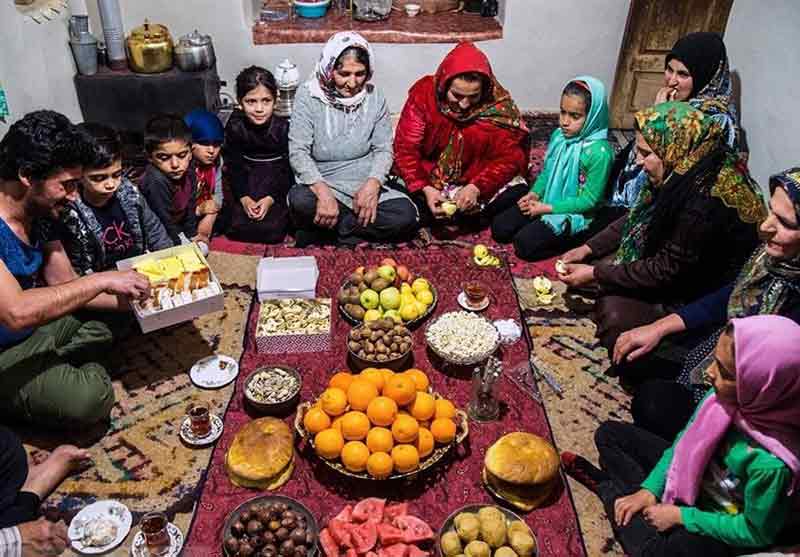
Hafez Divination
Poems of Hafez, the highly celebrated 14th-century Iranian Shirazi poet, have pervaded ancient Persian festivals. On the occasion of Yalda, divinations by Hafez anthology are one of the pleasant activities of the night. Each person makes a secret wish before an elderly member of the family opens the anthology of Hafez to read a random page. The guests interpret these poems as Hafez’s response to the wishes they made.
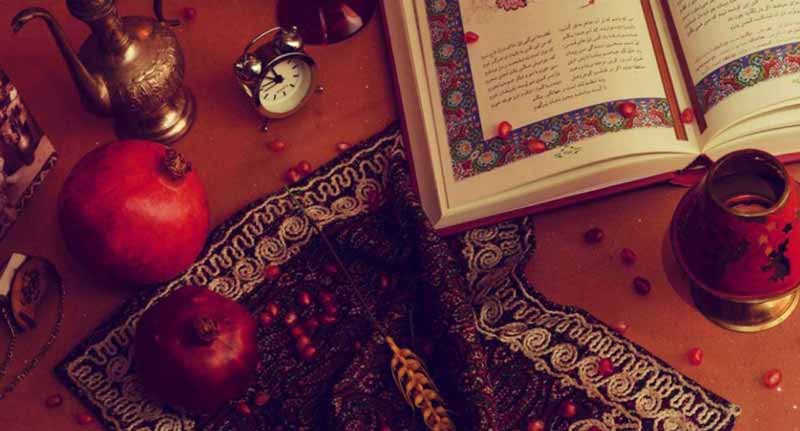
Participate in Yalda Night ceremonies!
You must visit Iran to savor the feast on the longest night of the year. You can join Iranians who celebrate the winter solstice in restaurants. There, local people will amaze you with their enthusiasm and hospitality. They receive foreign travelers as one of their own. And you can enjoy taking photos from the Yalda Night table and all the hospitable Iranians around it!
More Iranian Traditions:
Yalda Night
Every year on December 20th/21st, Iranian families get together and sit around a table covered with colorful fruits and treats, and make the year’s longest night the coziest. They recount stories, recite poems, and indulge in the ceremonial nuts and fruits prepared for an ancient Persian occasion called Yalda Night.

History
The oldest record of the Yalda Night ceremony dates back to the 6th century BC in Iran when the Arians observed this tradition as an ancient Persian Festival. It was believed to be the victory of light and goodness over darkness and evil. As the sun rises on the morrow of Yalda, the days start getting longer and the nights become shorter, respectively.
To celebrate the surrender of the longest night to the rising sun, the Arians would gather, eat, drink, dance, and tell stories well until dawn. They would have a lavish banquet called Myazd that included forty different types of fresh and dried fruits along with nuts and drinks and other dishes.
After the advent of Islam in Persian lands, Yalda Night as an Arian tradition survived but waned into more of a social event for families and friends to celebrate. Nowadays, Iranians still get together on this occasion, eat the same fruits and nuts (although not the same wide selection which was available in the past) tell stories, and read poems. However, the occasion has lost its Arian religious significance.
Yalda Night Meaning
Literally meaning “Birth” in Syriac language, Yalda Night refers to the birth of Mithra, the ancient Arian goddess of light. Iranians also call it Shab-e-Chellé. It is basically a winter solstice celebration on the first day of winter in the Persian solar calendar.
Yalda Night Food
Food is a pillar of every festival in Iran and Yalda Night is no exception. Traditionally, Iranians set a table or spread full of different types of foods as a sacred offering called Myazd. People help themselves with watermelons as they believe this fruit renders them immune to illness in winter. Pomegranates are also a significant fruit of the feast, for they symbolize fortune and fertility. According to traditions, Iranians serve forty different types of fruits and nuts in Myazd banquet; a custom that is seldom observed now.

Hafez Divination
Poems of Hafez, the highly celebrated 14th-century Iranian Shirazi poet, have pervaded ancient Persian festivals. On the occasion of Yalda, divinations by Hafez anthology are one of the pleasant activities of the night. Each person makes a secret wish before an elderly member of the family opens the anthology of Hafez to read a random page. The guests interpret these poems as Hafez’s response to the wishes they made.

Participate in Yalda Night ceremonies!
You must visit Iran to savor the feast on the longest night of the year. You can join Iranians who celebrate the winter solstice in restaurants. There, local people will amaze you with their enthusiasm and hospitality. They receive foreign travelers as one of their own. And you can enjoy taking photos from the Yalda Night table and all the hospitable Iranians around it!
More Iranian Traditions:






